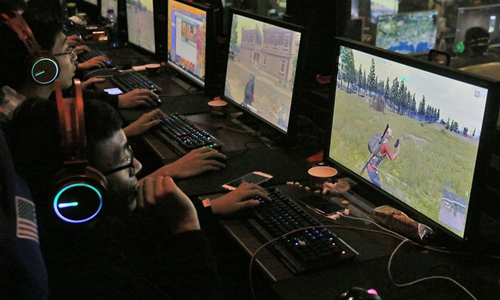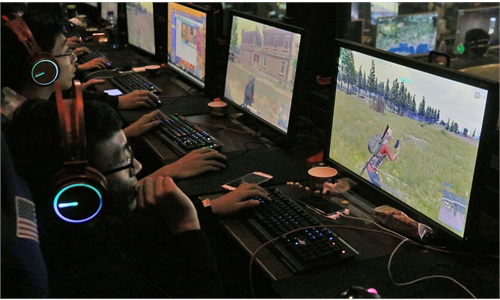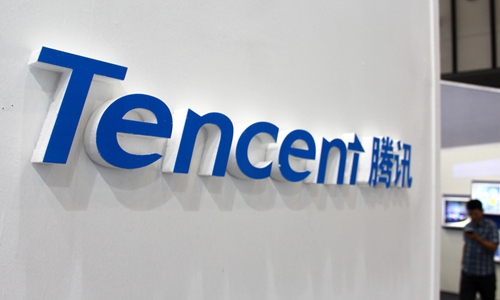
Photo:VCG
Chinese online gaming companies tumbled on Tuesday, after a report by Xinhua News Agency-affiliated Economic Information Daily said that the business is "spiritual opium," and the impact on teenagers' growth should not be underestimated.
In the morning trading on Tuesday, Tencent Holdings Ltd tumbled by 10.57 percent to HK$424.80 ($54.63) per share, NetEast Inc was down 11.76 percent to HK$139.60 and XD Inc fell to 11.97 percent to HK$42.30.
In the A-share market, Wuhu 37 Interactive Entertainment Network Technology Group Co dipped 6.52 percent to 18.65 yuan ($2.89) per share, Perfect World Co Ltd down 5.41 percent to 15.38 yuan and Zhejiang Century Huatong Group Co Ltd down 3.68 percent to 5.49 yuan by 11:30 am.
On Tuesday, the Economic Information Daily reported that addiction to online games has a double negative impact on teenagers' physiology and psychology. It pointed out that more than half of the country's children and teenagers suffered from nearsightedness in 2020, while there is a trend that addiction to online games impacts their academic performance and leading to the development of personality disorders.
The report said that the harm of online games is increasingly becoming a social consensus, with the industry being dubbed "spiritual opium" or "electronic drugs." Online gaming has already grown into a massive industry. In 2020, the actual sales revenue of the games market in China grew 20.71 year-on-year to 278.7 billion yuan, whereas Tencent - which accounts for about half of market share - posted income of 156.1 billion yuan.
The report said that a survey conducted at a middle school in Luzhou, Southwest China's Sichuan Province about students' addiction to online games showed that about 26.23 percent of the 2,000 some respondents play online games every two or three days, while 11.66 percent of the students play almost every day.
Honor of Kings, developed by Tencent, is the most popular internet games among these students, with 47.59 percent of the respondents playing the games frequently.
At the China Digital Entertainment Expo and Conference, better known as ChinaJoy, on July 29, Yang Fang, vice-director of the Publishing Bureau of the Central Publicity Department said that the country has established a national online game anti-addiction real-name authentication system, with over 5,000 enterprises and 10,000 games set to be connected.
Yang said that relevant government agencies will continue to focus on anti-addiction work in a bid to make positive progress in this regard.
Global Times



